 "TheRealBicycleBuck" (therealbicyclebuck)
"TheRealBicycleBuck" (therealbicyclebuck)
08/23/2018 at 13:38 • Filed to: None
 2
2
 18
18
 "TheRealBicycleBuck" (therealbicyclebuck)
"TheRealBicycleBuck" (therealbicyclebuck)
08/23/2018 at 13:38 • Filed to: None |  2 2
|  18 18 |
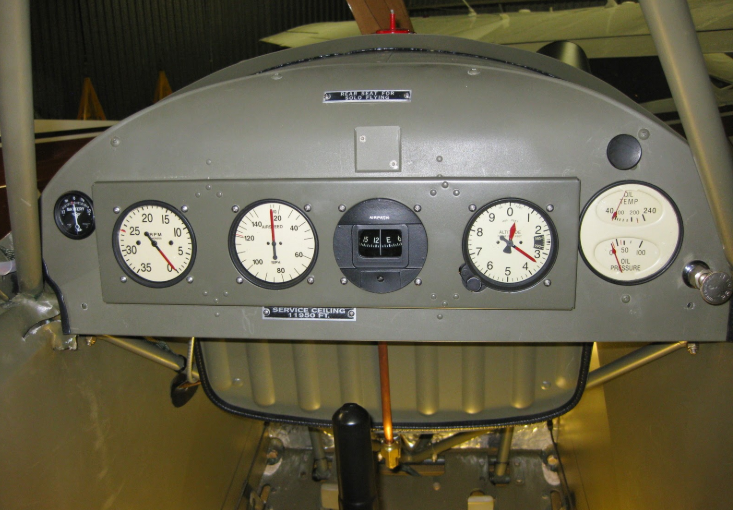
Just the facts, ma’am. Ammeter, Tach, Airspeed, Compass, Altitude, Oil Temp, Oil Pressure.
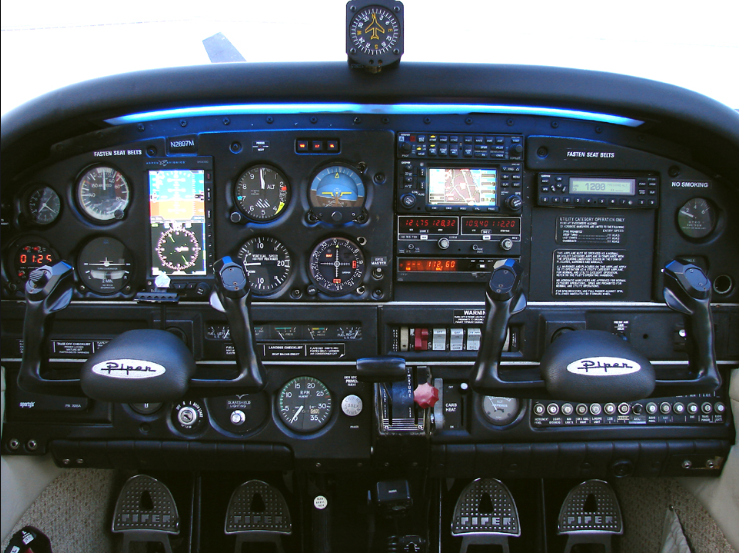
My, how things have changed.
 CaptDale - is secretly British
> TheRealBicycleBuck
CaptDale - is secretly British
> TheRealBicycleBuck
08/23/2018 at 13:54 |
|
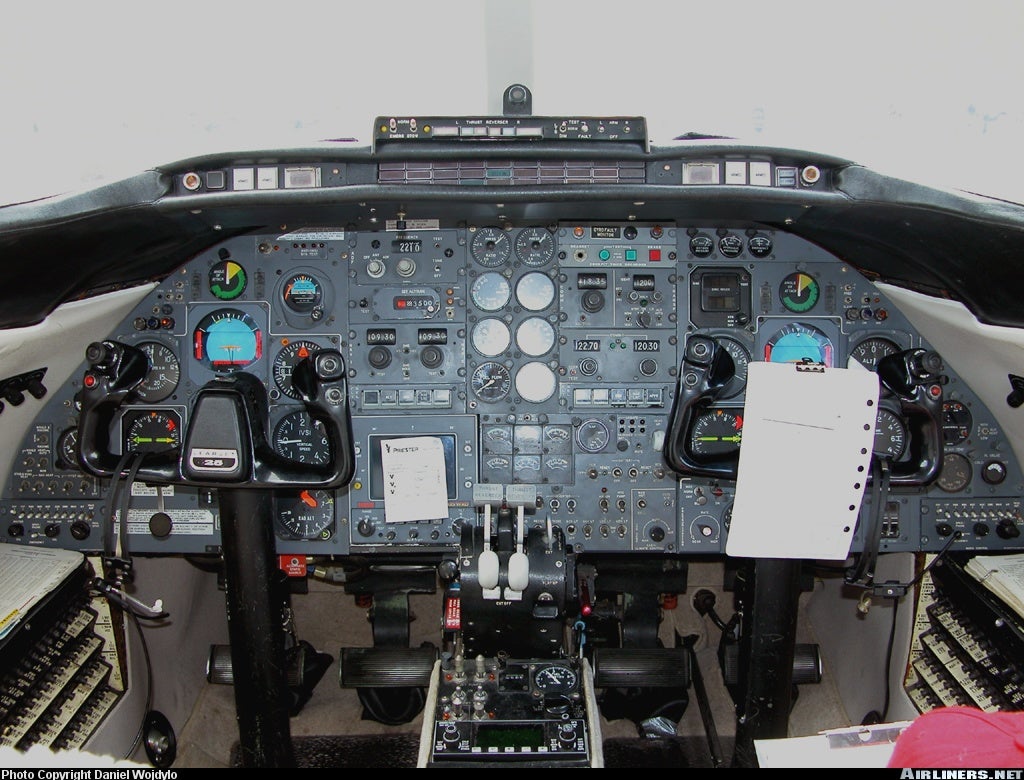
This is my dream cock pit, though some modernization is nice
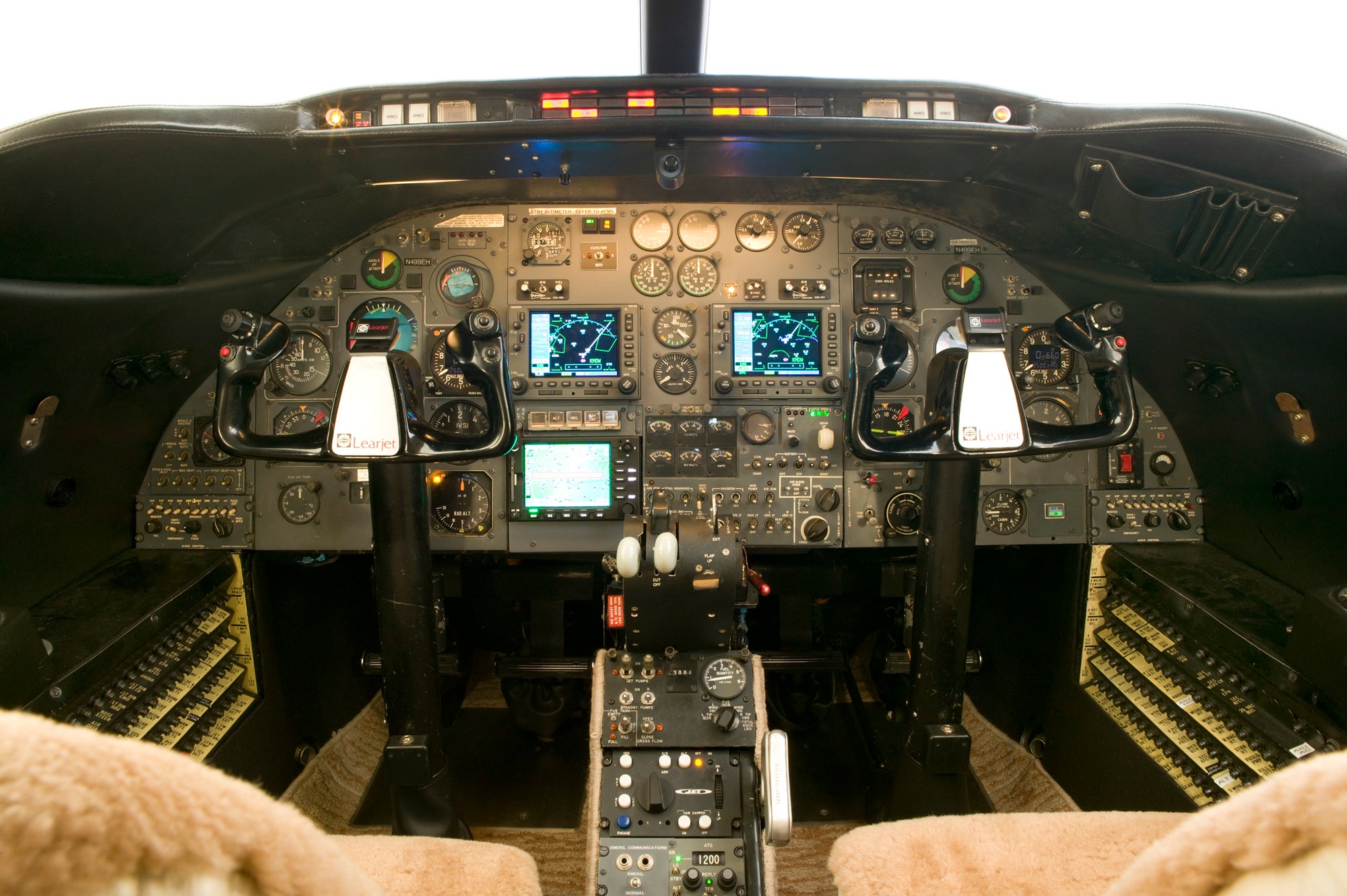
 facw
> TheRealBicycleBuck
facw
> TheRealBicycleBuck
08/23/2018 at 14:02 |
|
I feel like I’d be missing the attitude in dicator a lot. I guess you are supposed to look outside, but the outside world can be obscured and/or deceiving.
 facw
> TheRealBicycleBuck
facw
> TheRealBicycleBuck
08/23/2018 at 14:07 |
|
At some point things do get overly complex though (747-200):
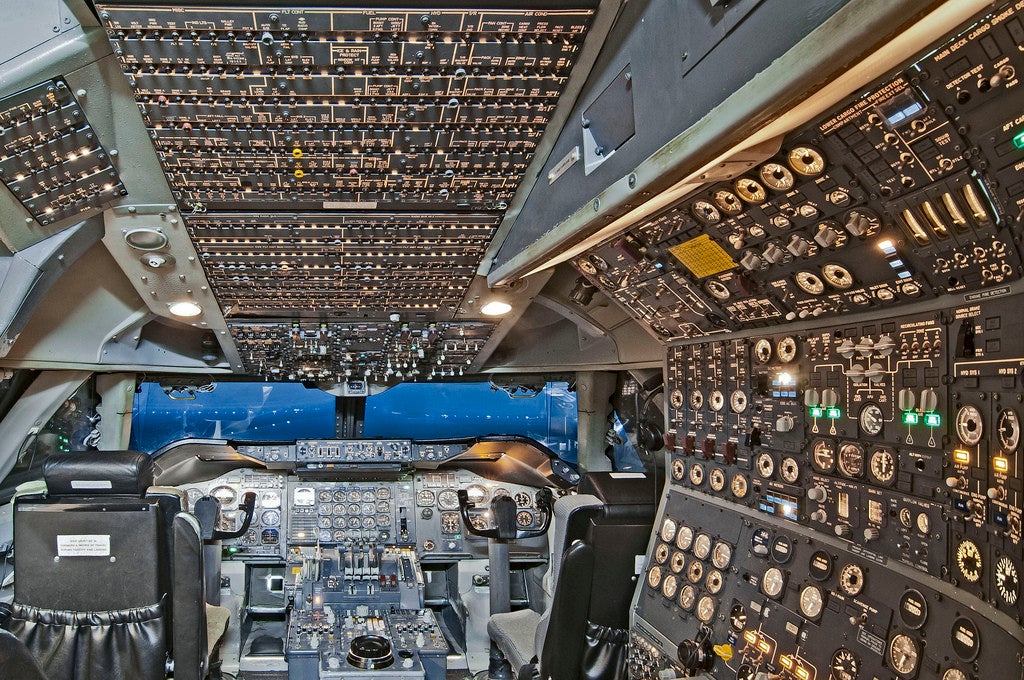
Modern glass-cockpits seem like a very clean solution. I’d love something like this in a small plane for example (though I might want different info on the screens):
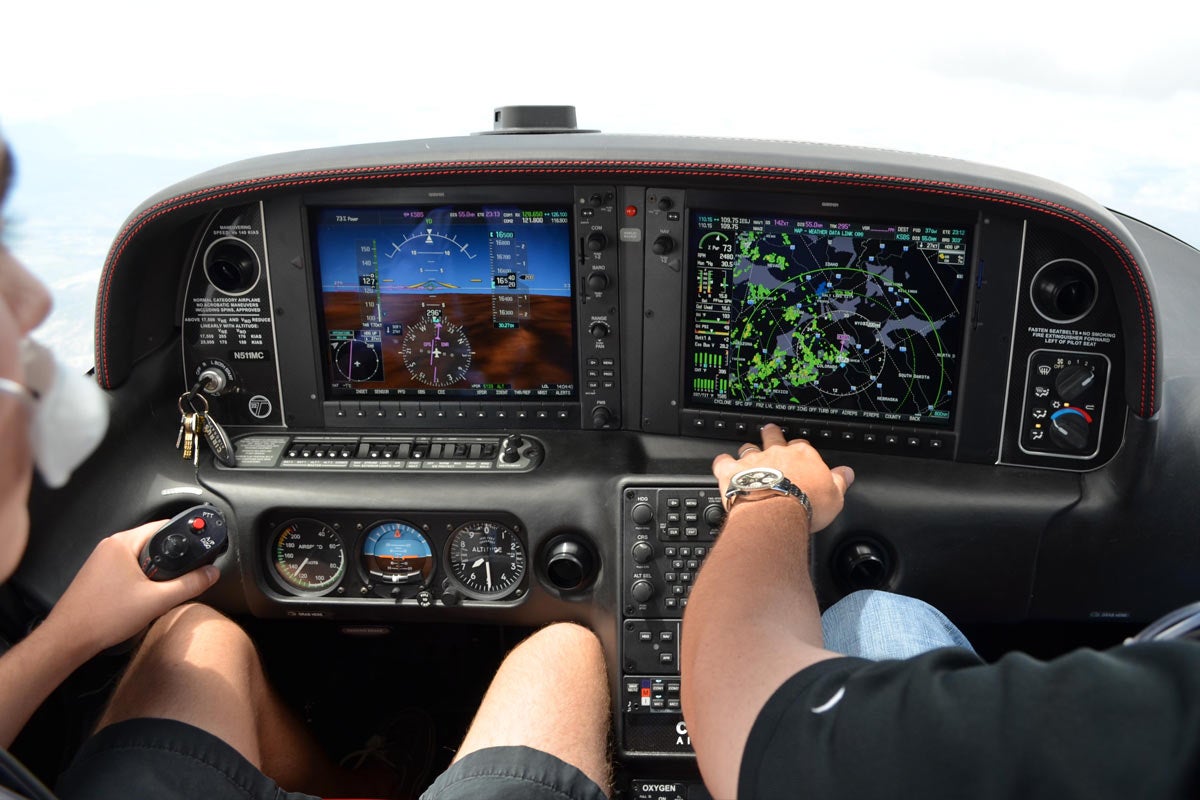
 user314
> facw
user314
> facw
08/23/2018 at 14:19 |
|
Yeah, that’s very obviously a VFR/CAVU only aircraft, whatever it is.
 TheRealBicycleBuck
> facw
TheRealBicycleBuck
> facw
08/23/2018 at 14:23 |
|
“I feel like I’d be missing the attitude indicator a lot.”
That’s why the top one is VFR only. We have a lady in our ground school who is part-owner in an Aeronica Champ. This is basically her dashboard:
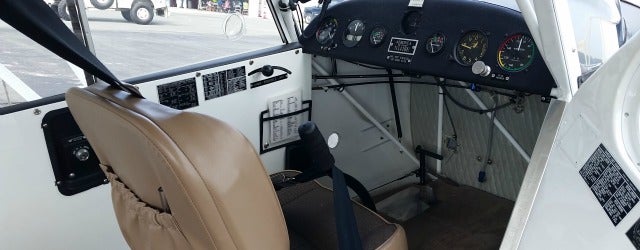
She’s only going for the Sport Pilot license. She won’t even be able to fly at night and she’s fine with that.
 bhtooefr
> TheRealBicycleBuck
bhtooefr
> TheRealBicycleBuck
08/23/2018 at 14:24 |
|
...that’s a Cub, I think?
Based on the J3C-65 in FSX... 11,950 ft seems awfully optimistic for a service ceiling. I guess maybe on a really cold day to keep the temps down?
 TheRealBicycleBuck
> facw
TheRealBicycleBuck
> facw
08/23/2018 at 14:27 |
|
I have access to a Cessna 172 with this cockpit:
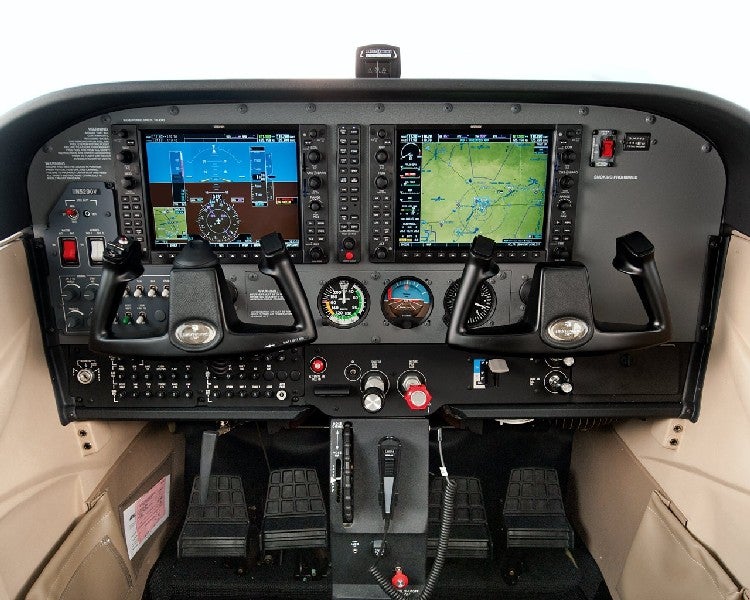
I’m doing the bulk of my training in something with a standard cockpit, but I will have to schedule time in this one so they can sign off on it.
 TheRealBicycleBuck
> bhtooefr
TheRealBicycleBuck
> bhtooefr
08/23/2018 at 14:34 |
|
It’s an L-4 Grasshopper. If you’re flying in the mountains, you’d need a high service ceiling.
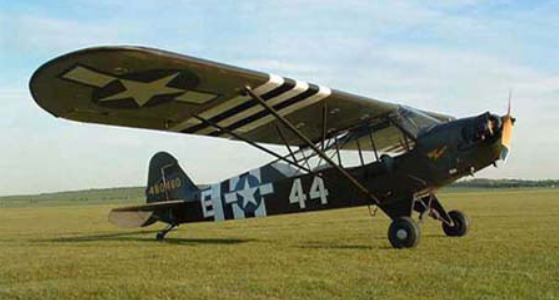
 bhtooefr
> TheRealBicycleBuck
bhtooefr
> TheRealBicycleBuck
08/23/2018 at 14:35 |
|
Close enough!
And I guess if you're taking off in the mountains, you won't heat soak things as quickly, and therefore can get closer to the service ceiling before overheating things.
 facw
> TheRealBicycleBuck
facw
> TheRealBicycleBuck
08/23/2018 at 14:41 |
|
Nice. When I did lessons it was mostly in a 152, so my cockpit looked more like this:
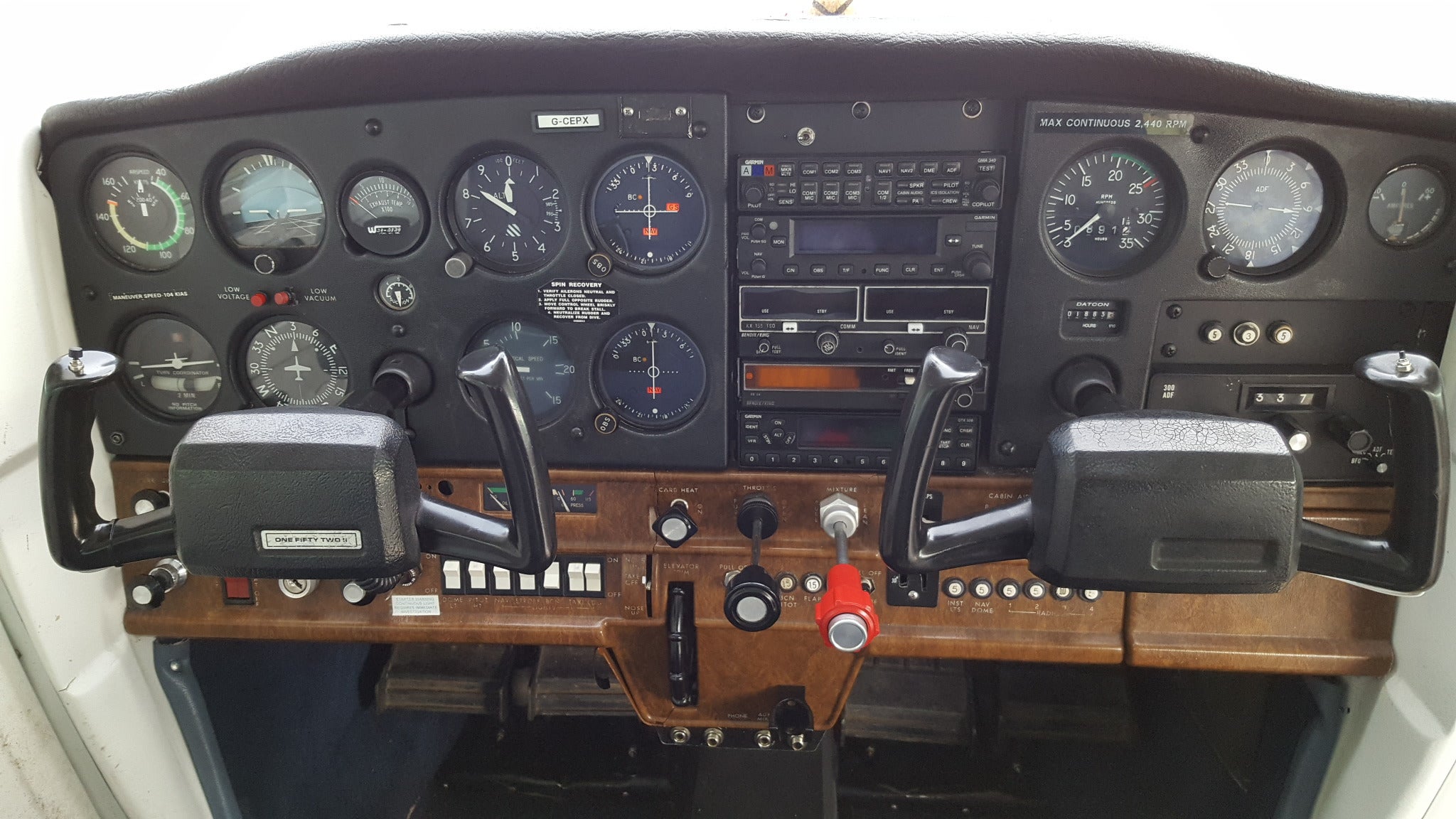
(though my center stack was a bit less advanced than the one pictured )
 TheRealBicycleBuck
> facw
TheRealBicycleBuck
> facw
08/23/2018 at 14:57 |
|
Here’s a bad photo of the dash on one of the planes I’ve been flying.
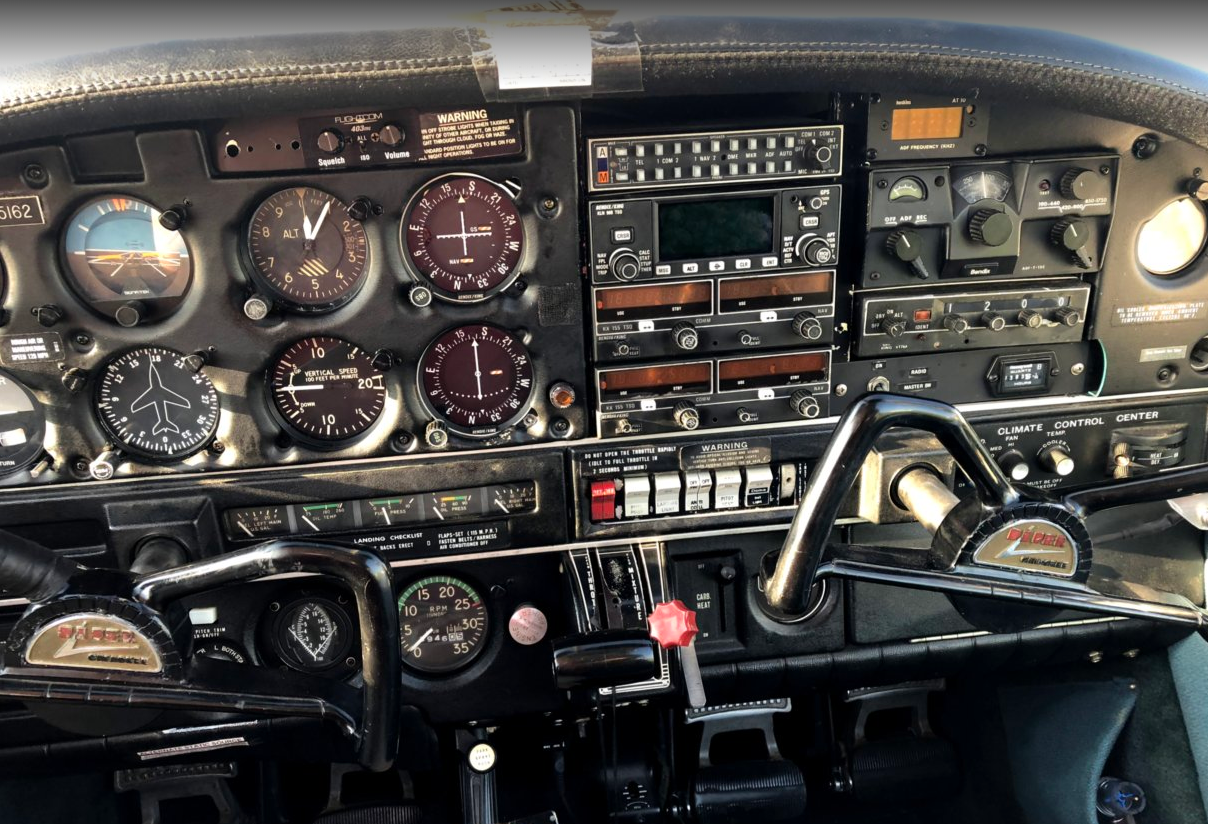
 For Sweden
> TheRealBicycleBuck
For Sweden
> TheRealBicycleBuck
08/23/2018 at 14:58 |
|
Less planes crash, so change is good
 TheRealBicycleBuck
> For Sweden
TheRealBicycleBuck
> For Sweden
08/23/2018 at 15:04 |
|
I’m not sure how much that is due to instrumentation and how much is due to updated airspace rules, weather prediction/monitoring, and traffic control. The biggest killer right now (according to the FAA) is loss of control due to stalls ( https://www.faa.gov/news/fact_sheets/news_story.cfm?newsId=21274 )
That falls to pilot error.
 For Sweden
> TheRealBicycleBuck
For Sweden
> TheRealBicycleBuck
08/23/2018 at 15:07 |
|
More information to the pilot will reduce the likelihood of a stall. The top cockpit doesn’t even have an attitude indicator.
 TheRealBicycleBuck
> For Sweden
TheRealBicycleBuck
> For Sweden
08/23/2018 at 15:12 |
|
A functioning stall warning horn is required equipment. In Pipers, it’s a light on the dash. I like the Cessna audible warning better.
When an aircraft i s VFR only, having an attitude indicator is somewhat unnecessary.
 ttyymmnn
> TheRealBicycleBuck
ttyymmnn
> TheRealBicycleBuck
08/26/2018 at 14:30 |
|
I just read this article in the latest Air & Space Magazine, and wanted to share it with you . This post is an especially appropriate place for it.
 TheRealBicycleBuck
> ttyymmnn
TheRealBicycleBuck
> ttyymmnn
08/26/2018 at 21:03 |
|
Excellent article. On my first training flight, conditions were perfect when we took off, but the the air changed mid-flight and a complete cloud layer formed below us. The plane was equipped with IFR instruments and my instructor has his instrument rating as all CFIs do. He had to take over the flight and bring us back to the airport under IFR conditions under the tower’s guidance. I’ve flown through many clouds on commercial flights, but this was the first time I’d been able to look through the windshield and see nothing but fog. It was a bit unnerving.
Thanks for sharing.
 ttyymmnn
> TheRealBicycleBuck
ttyymmnn
> TheRealBicycleBuck
08/26/2018 at 21:33 |
|
Glad you enjoyed it. A&S Mag is a great publication. In my writing for my aviation history posts, I have done a number of articles about famous people who died in a place crash. In almost every case, particularly in the older days, it was because the pilot wasn’t rated for the conditions yet flew anyway.